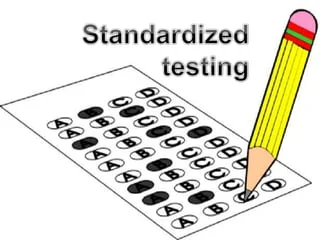Introduction
The use of standardized testing in the classroom has long been divisive. While detractors contend it fails to capture the range of a kid’s talents fully and can negatively impact both schools and students, proponents claim it offers an objective and consistent means to measure student success. We will examine the core of the standardized testing controversy in this blog, including its effects on students and schools, as well as its suitability as a gauge of academic advancement.
The Purpose of Standardized Testing
Standardized exams are intended to evaluate a student’s knowledge and abilities in a uniform and consistent way, making it simple to compare results between other schools, districts, and even states. The main objectives of standardized assessments consist of:
Accountability: These tests hold schools, teachers, and students accountable for their performance and help identify improvement areas.
Curriculum evaluation: They provide valuable data on the effectiveness of teaching methods and curriculum design.
Equity: Advocates argue that standardized tests help maintain educational equity by providing a standard benchmark for all students.
Impact on Students
The impact of standardized testing on students is a concern for many. Critics argue that these tests may have negative consequences, including:
Stress and anxiety: High-stakes testing can lead to stress and anxiety, with students feeling immense pressure to perform well.
Narrowing of the curriculum: To “teach to the test,” some educators may focus predominantly on test-related content, potentially neglecting essential subjects and skills.
Labelling and stigmatization: Low scores on standardized tests can lead to stigmatization and labelling, potentially harming students’ self-esteem and future opportunities.
Inequality: Critics contend that standardized tests can perpetuate inequality, as students from disadvantaged backgrounds may not have the same resources and support to excel on these tests.
Impact on Schools
Standardized testing has a significant impact on schools as well, which can be both positive and negative:
Accountability and improvement: Standardized tests hold schools accountable for student performance, motivating them to implement changes and improve educational quality.
Resource allocation: Test results may influence resource allocation, leading to more funding for schools with high scores and less for those with low scores.
Teaching to the test: Schools might be inclined to focus their efforts on teaching material that aligns with standardized tests, potentially neglecting other vital aspects of education.
School ratings and reputations: Test scores can impact a school’s reputation, influencing student enrollment and staff morale.
The Fairness Debate
This discussion still revolves around how fair standardized testing is. Standardized examinations have supporters who say they guarantee educational responsibility and level the playing field, while their detractors claim they disproportionately hurt underprivileged communities and don’t fully assess students’ talents.
The Way Forward
To address the concerns surrounding standardized testing, some advocates and educators propose a more holistic approach to assessment. This could include a combination of standardized tests with other evaluation forms, such as performance assessments, teacher evaluations, and portfolio assessments, to provide a more comprehensive view of a student’s capabilities.
Conclusion
The controversy surrounding standardized testing in education is unlikely to be resolved anytime soon. While it has its advantages, the negative consequences for both students and schools are real. It’s crucial to continue the conversation and seek a balanced approach that values accountability while respecting the diverse needs and abilities of our students. Only then can we determine whether standardized testing is a fair assessment of educational progress?
Written By :- Akash Sharma




